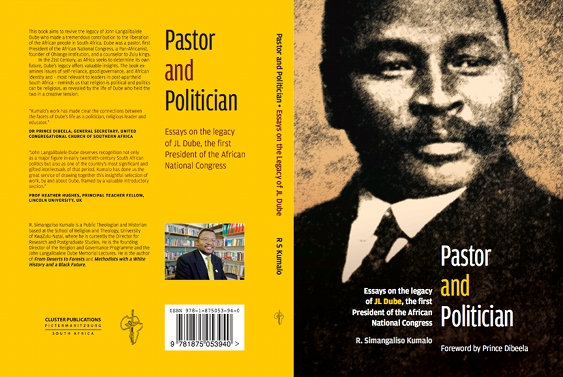Articles
The Ujamaa Centre offers a range of resources. Many of these resources may be downloaded from our website and used by those who share our commitments.
Ujamaa Tenth Anniversary The tenth anniversary celebration and evaluation
Kumalo, S. CHURCH RESOURCE MANUAL AGAINST SEXUAL VIOLENCE&PROMOTING GENDER JUSTICE
James, G.L. Tell it like it is! The case to include the story of the rape of Tamar in children's Bibles as an awareness tool.
Kumalo, S. "THE PEOPLE SHALL GOVERN": NOW THEY HAVE ONLY THE POSSIBILITY TO VOTE
Kumalo, S. The palace, the parish and the power: Church-State relations in Rwanda and the genocide
Kumalo, S.Transforming South African Methodism: The"Journey to the New Land" Programme 1992-1997.
West, G. O. (1997). Reading on the Boundaries: reading 2 Samuel 21: 1-14 with Rizpah. Scriptura, 63, 527-537.
West, G. O. (2006a). Contextual Bible reading: a South African case study. Analecta Bruxellensia, 11, 131-148.
West, G. O., & Zondi-Mabizela, P. (2004). The Bible story that became a campaign: the Tamar Campaign in South Africa (and beyond). Ministerial Formation, 103, 4-12.
West, G. O., Zondi-Mabizela, P., Maluleke, M., Khumalo, H., Matsepe, P. S., & Naidoo, M. (2004).Rape in the House of David: the biblical story of Tamar as a resource for transformation Agenda, 61, 36-41.
West, G. O. (2007). Thabo Mbek's Bible: the role of religion in the South African public realm after liberation October, draft paper.
For all the articles and publications of Gerald West, click here. (you will be directed to another website)
Books
 |
The Stolen Bible by Gerald West The Stolen Bible tells the story of how Southern Africans have interacted with the Bible from its arrival in Dutch imperial ships in the mid-1600s through to contemporary post-apartheid South Africa. The Stolen Bible emphasises African agency and distinguishes between African receptions of the Bible and African receptions of missionary-colonial Christianity. Through a series of detailed historical, geographical, and hermeneutical case-studies the book analyses Southern African receptions of the Bible, including the earliest African encounters with the Bible, the translation of the Bible into an African language, the appropriation of the Bible by African Independent Churches, the use of the Bible in the Black liberation struggle, and the ways in which the Bible is embodied in the lives of ordinary Africans. | |
 | Church and Culture: By Prof.R. Hewitt This book examines the forces of inculturation within the Jamaican context and asserts that inculturation of the gospel as experienced by this church does not constitute a one-way movement in which African-Jamaicans journey from Euro-centric Christian identity to an Afro-centric Christian identity. Rather it is a complex socio-religious phenomenon of hybridity and contradiction that incorporates duality of development and varied experiences.
| |
 |
Pastor and Politican: By Prof R.S Kumalo This books aims to revive the legacy of John Langalibalele Dube who made a tremendous contribution to the liberation of the African people in South Africa. Dube was a pastor, first President of the African National Congress, a Pan-Africanist, founder of Ohlange Institution, and a counselor to Zulu kings. In the 21st Century, as Africa seeks to determine its own future, Dube's legacy offers valuable insights. The book examines issues of self-reliance, good governance, and African identity and - most relevant to leader in post-apartheid South Africa - reminds us that religioun is political and politics can be religious , as revealed by the life of Dube who held the two in a creative tension. | |
 |
Religion & Politics in Swaziland: By Prof. R.S. Kumalo R. Simangaliso Kumalo offers a candid reflection on the interface between politics and reigion in Swaziland by reflecting on the works of Joshua Mzizi. The strength of the book is not just the fact that it is written by a Public Theologian but on his ability to reflect on the particular, which is Joshua Mzizi and Swaziland, in order to reveal insights to the bigger story which is the interface between Politics and Religion in Africa. Through J.B. Mzizi's writings we get a window to the collusion between religion, culture and politics to keeping the ordinary Africans poor and oppressed. Here, in the first and only major volume is a collection of his academic and popular writings, speeches and autobiographical reflections, his belief in Political Theology, religion and politics, culture and Christianity and the ethics of dialogue and hope. Through his personal story we get insights as to how African intellectuals are made and how they are marginalised, vilified and sometimes persecuted, though in spite of this their message for the continent remains relevant. | |
 | Methodists with a White History: By Prof.R.S Kumalo At first glance R. Simangaliso Kumalo ’s book Methodists With a White History and a Black Future: The People Called Methodist in KwaZulu-Natal looks to be of interest only to Methodist Christians. However, you only have to read a few pages to discover that by focusing on the particular, Kumalo has something to say that is of relevance to all of us. The particular in this case is the Central Methodist Church in Durban and Kumalo’s book tells the story of how the church came into existence and how its various ministers and congregations have weathered the changing political and socioeconomic upheavals of this country over the past 40 years. (source: http://www.google.com/url?url=http://sorat.ukzn.ac.za/Libraries/CVs/RS_Kumalo_2.sflb.ashx&rct=j&frm=1&q=&esrc=s&sa=U&ei=e6v-VPm8AoerU7GBg-AI&ved=0CB8QFjAC&usg=AFQjCNHNmr-NIRBt0hbymStHX1_M3fU7QQ) | |